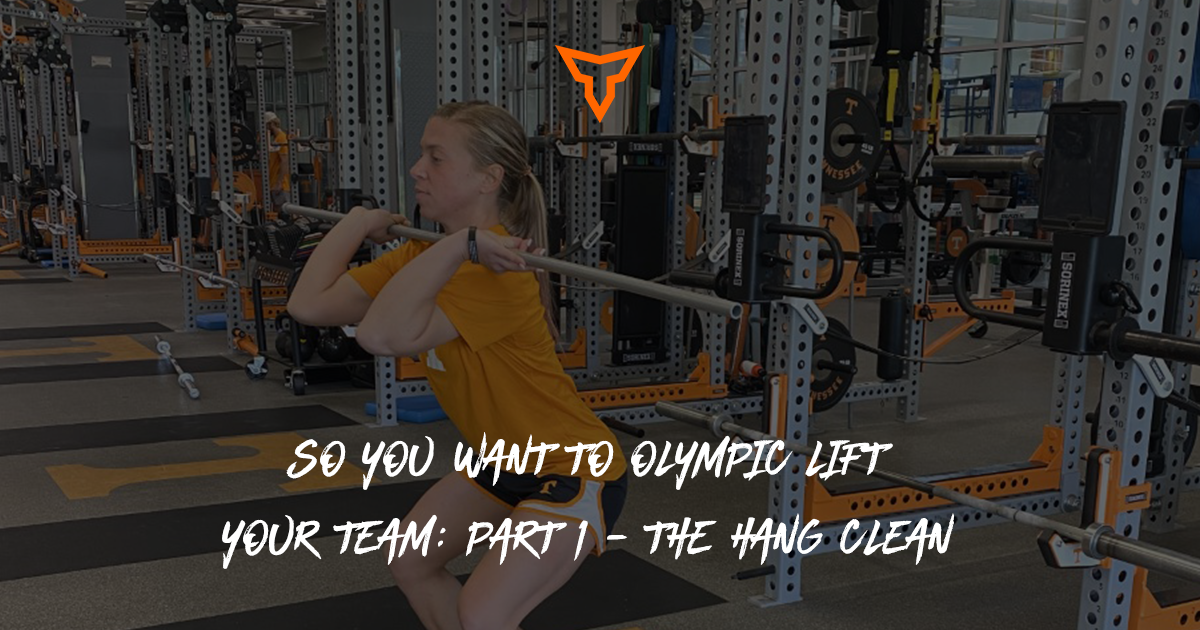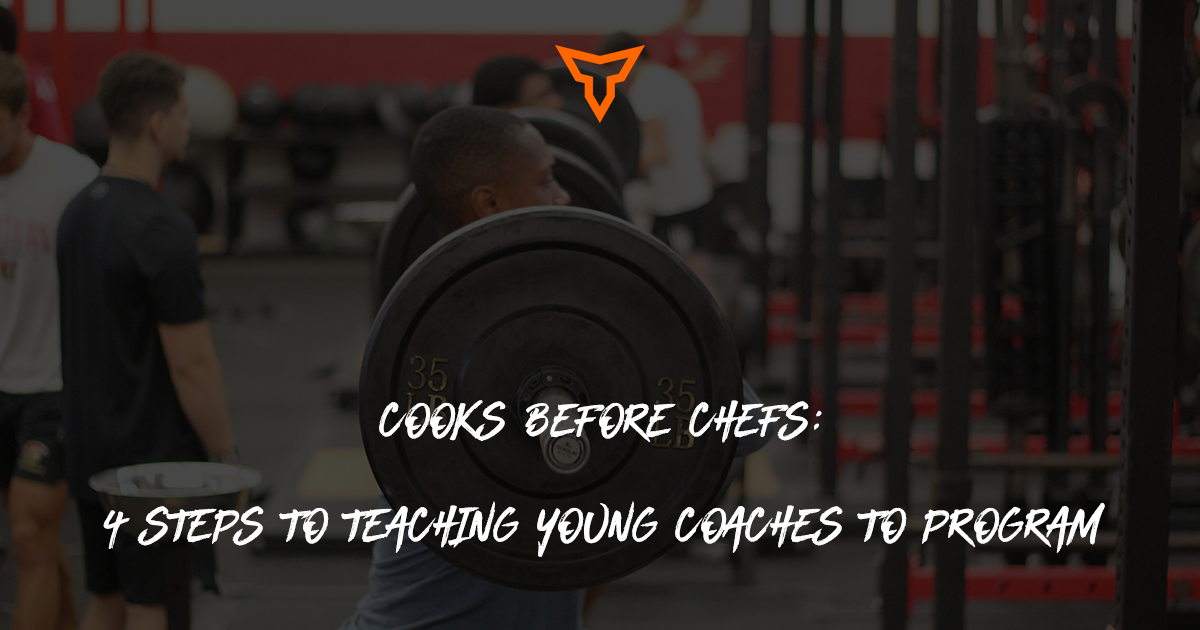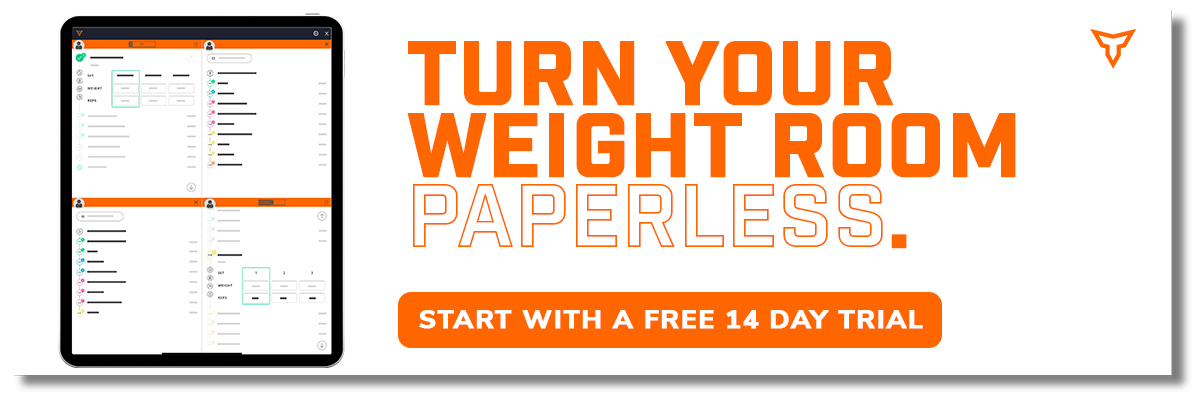The Return: Why I Came Back to College Athletics
If you would’ve asked me in the fall of 2020 if I would ever coach in the college sector again, I would’ve looked you dead in the eye and said, “absolutely not”. I would’ve told you my priorities have changed and that I was burned out.
I was tired of being susceptible to losing my job based on the outcome of games I had little to no control over. I was tired of seeing my family for a few days just to jump right back on a plane. I was tired of moving around the country chasing the elusive job or title that would make it all worth it.
I wanted stability, I wanted to work for myself, and I wanted to fulfill a bigger mission. I was burned out, I was tired of moving, and I no longer saw the juice as "worth the squeeze." As burned out as I was, I never had the negative feelings that so many coaches who leave the college world seem to have. I still loved what I did, I still loved the people, I just needed a change.
Flash forward to summer 2021: I’ve turned down multiple college jobs, opened a performance center in northeast Pennsylvania near my family, and built a successful leadership consulting business. I’ve got everything I wanted, right? Don’t get me wrong, I was happy. I was making my own schedule, enjoying more time with family, attending weddings, going fishing, and I even took up golf. Yet, deep down, I knew something was missing. The coaching bug was still in me, and despite my work at the performance center, my appetite for coaching just wasn’t being satisfied. Calls and texts about open positions started to grab more and more of my interest. I found myself browsing Football Scoop and thinking “maybe…” The answer to “would you ever come back to college?” went from “Absolutely not.” to “in the right situation with the right people.”
Summer turned to fall and the college athletes I was training at the performance center headed back to campus. The high school athletes went back to school, and the group sizes dipped as to be expected with the changing of the season. Most private sector coaches enjoy this seasonal dip and look at it as a well-earned break after a hard summer of work. For me, this decrease in time spent on the floor left me feeling anxious and restless. I could no longer deny the voice in my head telling me I missed coaching. That’s when Susquehanna University, my alma mater, reached out. There was an opportunity to return to SU as the Head Strength & Conditioning coach. Before I could think about my response, I immediately said I was interested. I remember lying in bed that night thinking, “am I really going to do this again?” A few weeks later, I was walking into the Vialonga Sports Performance Center before the sun came up to start setting up my office and prep for my first group.
So, what changed? First and foremost, I wasn’t lying when I said, “in the right situation with the right people”. The school was within an hour of my family, and I knew the coaches and the administration. Right people, right situation.
Although my first response was impulsive, I knew this time around I needed guardrails if this was going to work long term. I was no longer a young, single coach with no outside priorities beyond work. I now had to consider balancing a growing business, a relationship, and life outside work. This meant I had to approach the interview process much differently than any other hiring process I had been through. I made lists of all the factors that led to my exit from the college arena back in 2020, and formulated questions and concerns that I wanted to address before accepting the role. These were largely based on my personal vision, mission, and values. I would suggest any coach reading this to come up with a similar list to ensure you’re entering a situation you can be successful in.
I also recognize young coaches may not be in the situation to be this transparent in the interview process. To those young coaches, I recommend asking questions that pertain to your responsibilities and ability to have work-life balance, opportunities for growth, and how you will be evaluated. This is not an exhaustive list but should serve as a jumping off point.
For my situation, the areas I needed to address were as follows:
1. Expectations
I firmly believe in overcommunicating expectations. In my consulting business, I constantly preach the 10x rule. Be 10x as clear as you think you need to be. Clearly defined expectations set the table for productive feedback conversations, guide goal setting, and avoid underlying tensions when visions are not aligned. I wanted to know exactly what was expected of this position. In other words, what is the perception of strength and conditioning from the eyes of administration?
Questions for Hiring Committee/Administration
- What role does Strength & Conditioning play in the athletic department?
- What areas can S&C support the vision/mission of the department and university?
- What would a dream relationship look like between S&C and administration?
- What is the biggest challenge facing this department, and S&C specifically?
- What initiatives would you like to see implemented?
- Where can S&C add value to the department beyond the weight room?
Questions for Self-Assessment
- Does this role align with my personal vision statement?
- Do I get to fulfill my mission in this role?
- Do my values align with the values of the organization?
- What areas would I need to grow in to meet the expectations?
2. Resources
When I accepted my first role as a Director of Strength & Conditioning at the ripe old age of 24, I reached out to one of my mentors for advice on how to best utilize my staff. I had visions of operating a Power 5 school at my Division 2 institution. He responded with a simple quote that I have since applied to almost every area of my life; “If the resources don’t match the expectations, it’ll never work.”
I know every strength coach believes their budget isn’t sufficient, but as Dr. Pat Ivey said in his recent article, there is always more than one way to get what you want. With that in mind, I’m not addressing only the financial resources in this area. Financial resources will get you the toys, the bells and whistles, and the gear. While I’m not complaining about having a healthy Nike budget and some new equipment, I’m not naïve enough to believe those things build great programs. When I say resources, I’m referring to things like staffing, time, energy, and opportunities for collaboration. AKA, things that actually matter.
Questions for Hiring Committee/Administration
- What is the potential for additional staffing?
- How is continued education supported by the department?
- What is the relationship between athletics and academics like?
- What other departments on campus could be potential resources for S&C?
- What is the current budget? Yearly projections? Recurring costs?
- What fundraising opportunities exist?
- How are current department wide fundraising initiatives structured? Is S&C included?
- Are there any current partnerships between community businesses/influencers and athletics that could be utilized?
Questions for Self-Assessment
- Do the current resources meet my needs and allow me to be effective in my role?
- Is there reasonable evidence that the resources will grow with the role?
- Are there opportunities to be creative?
- What would those opportunities cost? (Time, money, energy, etc.)
3. Evaluation
Strength & conditioning coaches have sounded off for years about the lack of proper evaluation of our roles. This is due largely to the process driven nature of our profession. Pair this with the outcome or results driven nature of the athletics industry as a whole and you have the ingredients for vague or non-existent performance standards. One way I’ve combatted this is by creating my own self-evaluation and providing a copy to my administrator or supervisor immediately. I let them know how I’d prefer to be evaluated.
Does it always work? Absolutely not. I have, however, had some supervisors who combine my evaluation template with existing staff evaluations to create a more holistic assessment process.
Questions for Hiring Committee/Administration
- Who oversees evaluations?
- Is there an existing rubric? Is there room for input/improvement on this rubric?
- How often do evaluations occur?
- Do evaluations play a role in salary/financial incentives?
- What role do student-athlete/sport coaches play in the evaluation process? (Reviews, surveys, etc.)
- What is the most valuable metric you use to evaluate S&C? Why?
- Are there tangible goals in place for the position/department?
Questions for Self-Assessment
- Do I feel I will be fairly evaluated?
- Can I reasonably justify my performance with metrics, data, etc.?
- Can I set goals that force me to grow as a professional?
- Do these goals align with my professional goals?
4. Holistic Growth
As practitioners we strive to push our student-athletes to grow physically, mentally, and emotionally. It is my opinion that we should expect the same of ourselves. It’s easy to fall into a rhythm of checking boxes and knocking out those pesky CEU’s through clinics and conferences where we hear the same lectures repackaged for a new audience. When I returned to college athletics I did it because I wanted to grow again as a professional and as a person. I wanted to join a campus community that was committed to growing in all directions, not just staying in their lane. With that in mind, this area of emphasis is largely the responsibility of the individual. Yes, the opportunities must exist, but we cannot expect them to be handed to us on a silver platter.
For example, I own a small business and I’m coaching at one of the top business schools in the country. Do you think it would be beneficial for me to get involved with campus activities at the business school or attend guest lectures? I’d say so. Todd Hamer did a great job of modeling this holistic growth through his involvement in a variety of campus activities and events during my time at Robert Morris University. I saw firsthand the value this added to his own growth, his relationship with the student-athletes, and his relationship with the community.
Questions for Hiring Committee/Administration
- What opportunities exist to interact with academics/campus community?
- What is the campus policy on auditing classes/attending lectures?
- Are there opportunities to participate in committees on campus?
- What is the university policy on continued education inside and outside direct roles?
Questions for Self-Assessment
- What areas do I want to grow in? Are there opportunities that support this?
- Are there opportunities to learn new skills that add value personally/professionally?
- Will I become a better coach/leader/person from being involved in this organization?
Now, I know a lot of you are reading this saying “you said you were going to tell us why you came back, not how to ask interview questions”…I know, just stick with me. Ultimately, the decision to return to the college setting was easy once I started asking the right questions. I wasn’t burnt out because of the places I worked or the industry itself. Sure, I was underpaid, but that’s my fault for taking jobs that didn’t allow the flexibility to create additional income. All those reasons I gave for leaving college were a direct result of me not knowing myself or valuing my needs.
I came back to college because I took the time to clarify my values, my priorities, and my mission. I came back because I want to be challenged as a leader and as a practitioner. Most importantly, I came back because I was able to get answers to the questions that would ensure this position would be fulfilling to me as a person and as a coach.
I know myself well enough to know that this time needs to be different. I need to do all the things coaches talk about but rarely execute. I need systems and processes in place to allow me to be effective and efficient. I need boundaries that protect my personal time and place an emphasis on a healthy relationship with work (blasphemy, I know). I need to find opportunities for growth outside my profession. I’m not promising that I’ll be able to do all these things, but I am willing to put my money where my mouth is and climb back in the arena for another round. As MJ said in his famous fax back in ’95, “I’m back.”
Subscribe to our blog
Subscribe to receive the latest blog posts to your inbox every week.
Related posts

So You Want to Olympic Lift Your Team: Part 1 - The Hang Clean

Cooks Before Chefs: 4 Steps to Teaching Young Coaches to Program


